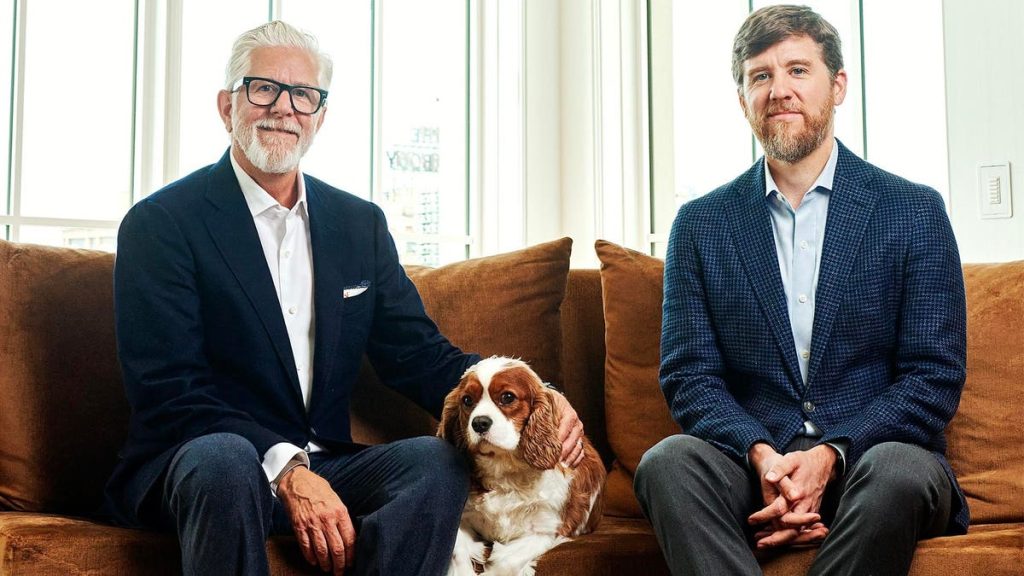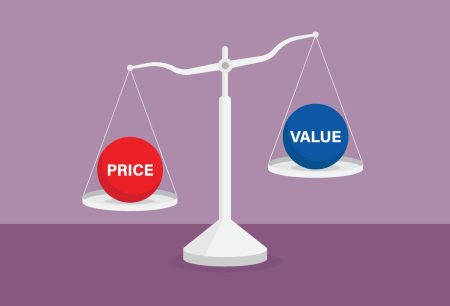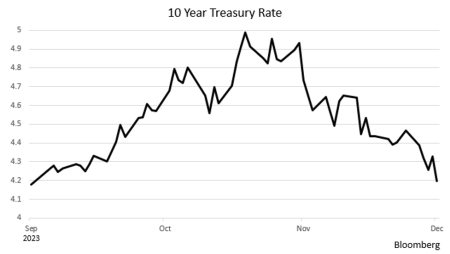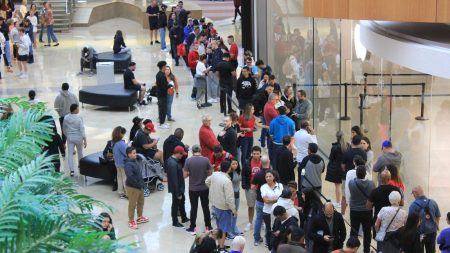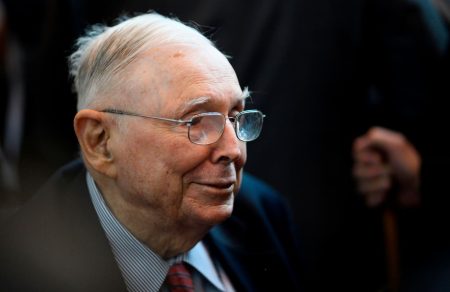Father-and-son team Michael and Phillip Cook run a small portfolio of small-cap stocks that has generated big returns by finding future household names.
By Sergei Klebnikov, Forbes Staff
What do a food waste recycling company, a building materials manufacturer, a distillery and a Western-wear retailer all have in common? At first glance, not much. But according to a family duo of investors at Memphis-based SouthernSun Asset Management, they are three low-profile corporations with strong business models and conservative finances that are positioned to escape the doldrums in which U.S. small–capitalization companies find themselves.
“One of the beauties of what we do is we find companies that do well even in difficult markets because they consistently have a high degree of flexibility on their balance sheet with a clear plan to generate returns on capital, ” says Michael Cook, 66, who founded the firm in 1989 and today runs it alongside his 41-year-old son, Phillip.
They should know: Though it hasn’t been a great period for small caps, the firm still boasts an excellent track record, up 9.4% over the past five years and 17.5% in the last three, compared with just 3.3% and 6.7%, respectively, for the Russell 2000 index of small-capitalization stocks. Michael and Phillip’s stellar performance has been powered by a portfolio of companies that include the four mentioned above: Darling Ingredients (DAR), Louisiana-Pacific Corp. (LPX), MGP Ingredients (MGP) and BootBarn (BOOT).
While Michael Cook spends most of his time researching companies, Phillip handles much of the day-to-day management. They run two strategies: the flagship SouthernSun Small Cap fund (SSSIX), and the small- and mid-cap, SouthernSun U.S. Equity (SSEIX). Combined, they manage over $1 billion of assets for a mix of institutional businesses, corporate pension plans, family offices, high-net-worth individuals and foundations.
Most holdings in the firm’s small-cap fund have a market capitalization of $3 billion or less, while the SMID cap strategy typically invests in companies of up to $6 billion. “That said, we do not have a hard cut-off for when we have to sell a business because we like to let great companies grow within our client portfolios,” says Phillip.
The flagship fund’s 21-stock portfolio is up more than 10% this year, outpacing the Russell 2000’s 8.8%. That comes on the heels of an outstanding 2022, at least in relative terms, when the fund ranked top among its peers, according to Morningstar, losing just 1%—compared with drops of roughly 20% for the Russell and the large-cap S&P 500.
While SouthernSun boasts a solid long-term track record since its inception, since deciding to jointly spearhead the team eight years ago, father and son have consistently outperformed their benchmark—often by a country mile. They manage a low-turnover, concentrated portfolio of under-the-radar businesses and aim to double their invested capital roughly every half-decade.
Since the small-cap mutual fund’s inception in 2003, it has posted an annualized return of 13%, outpacing the Russell and the S&P indexes.
Though it has fewer assets, SouthernSun’s SMID-cap fund has had solid results as well—with the strategy up 15% this year, more than double its benchmark. Over the last five years, the fund has returned 9% on an annualized basis, well above peers.
“We’re hooked on the idea of finding innovative companies that nobody has ever heard of,” says Phillip Cook. They have to keep doing it, as their winners outgrow the fund’s lightweight class. “If it’s a great company, we know it won’t be a small cap forever.”
Among SouthernSun’s biggest wins in the past are the likes of rural-supply retailer Tractor Supply (TSCO) and fluidics system manufacturer Idex Corporation (IEX) back when they were still small caps. Today the companies are worth $23 billion and $16 billion, respectively.
“We bought Idex when the company was worth less than a $1 billion 25 years ago,” recalls Phillip Cook. SouthernSun bought shares of Tractor Supply, meanwhile, in October 2002 at less than $4 a share, eventually selling the position in August 2012 at around $48.
Tractor Supply is especially “typical” of SouthernSun’s investing philosophy, say the Cooks, and is what they try to emulate when picking new investments.
Michael Cook knew the company from his younger days raising cattle. The local farmers co-operative “didn’t always have all the stuff that I needed,” he recalls. “I started going into Tractor Supply and was completely intrigued by the level of expertise and how they set up the store.” He recalls running back home to research the company and then first buying shares when the stock price fell after reports of an inventory management issue in 2002.
“The model was beautiful—it was a real niche around the hobby farmer and rural lifestyle,” he says. Not only did it have little competition, but Tractor Supply was using an effective expansion strategy of quickly setting up prefabricated stores next to Walmart centers. What’s more, when rival Quality Stores went into bankruptcy, Tractor Supply seized the opportunity to cherry pick from among its locations. “That exponentially changed them from a Southeastern-dominated business to a broader footprint, which accelerated their push west,” says Michael Cook.
The “next Tractor Supply” that the Cooks are betting on is Western-apparel retailer BootBarn, a company with a $2.6 billion market cap and one of the newest additions to their portfolio. “Just like Tractor Supply, it’s a deceptive name—they don’t just sell boots,” says Michael Cook. “The profile of the business is so reminiscent of Tractor Supply: They have a real growth algorithm without much competition and a management team that knows how to execute on its playbook.”
BootBarn gets a huge advantage from its ability to capitalize on the growing Western and workwear consumer market. Based in California, the company has been slowly yet steadily expanding across the country—without much competition from existing mom-and-pop shops—as it sees high demand for its country-lifestyle products. “That creates a flywheel effect as the brand gets more well recognized,” says Michael Cook, who also likes the high margins on the company’s store-owned product lines. BootBarn’s stock has risen 40% this year and now trades at nearly $90.
“We look for niche dominance and companies that do well in tough times,” says Phillip Cook. “Our smaller, more nimble company universe is able to adapt to rapidly changing conditions much better than large caps.”
Michael Cook started in the business on the sell side, working for the trust department at a regional bank in Memphis in the late 1980s. “I was very bad, I wasn’t a salesman but I did love doing research—that’s where my journey started,” he recalls. The 1987 stock market collapse, known as Black Monday, was a curveball for his career—by the following year, along with many of his colleagues, he received a pink slip.
While he knew he wanted to manage money, Michael didn’t like the idea of relocating his entire family—with three small children—to a financial center like New York, instead choosing to stay in Memphis and invest small sums for family and friends. He founded SouthernSun in 1989 with “no expectation of creating an investing behemoth.” Instead he focused on acquiring quality companies for his modest portfolio.
“We spent the first 15 years in total obscurity,” says the elder Cook. “In the midst of it all, I had the opportunity to really hone my craft and begin to understand what makes businesses great over long periods of time,” he adds. “I came in with a longer-term-oriented philosophy that was very much informed by watching my father and grandfather’s commercial construction business go through feasts and famines.”
It was after the turn of the millennium when he began to expand the firm that he added several partners to run the business with him as well as adding his son to the investment team in 2006. Phillip Cook’s background was in private equity, working as an analyst to the CEO of Trivest Partners, a Miami-based firm focused on middle-market leveraged buyouts. As he describes it, however, he was “turned off” by the flip-it mentality—with short holding periods for businesses—in the industry.
“While private equity is much longer-term on average than public markets, it’s still not like family money that owns a business and runs it for decades—our approach has that advantage,” says Phillip. When he joined SouthernSun as an analyst, he first helped build out the newly launched global strategy, living and working out of Madrid. He returned to Memphis in 2008, however, after the onset of the financial crisis.
The global strategy that Phillip first worked on was later shuttered in 2020—after just 15 years. “It felt like the right thing to do,” he recalls of closing the fund that year, on the heels of the Covid pandemic. “We were convinced that we could more effectively find opportunities by concentrating the firm around a singular focus—smaller cap companies in the U.S.”
One of SouthernSun’s toughest challenges came in 2014 and 2015 during a severe downturn for industrials. After losing a lot of assets—with some clients withdrawing money due to underperformance, Michael shuffled the structure of the firm, elevating his son to oversee day-to-day operations and portfolio management while he focused on investment philosophy. The dynamic shifted to two people making decisions from a four person-team that included Michael and his previous partners.
The restructuring—with a more streamlined hierarchy—paid off, as performance rebounded sharply in the following years. There were particularly strong returns in 2017 and 2019: 18.3% and 35.8%—compared with the Russell 2000’s 12% and 23%.
“For me, working together has been absolutely fantastic,” says Michael Cook. “As one might imagine, there are always times that it might challenge a relationship, but in the grand scheme of things we’re very likeminded in so many ways.”
Phillip says that he and his father had some clashes in the years immediately following the restructuring but they ultimately worked things out by both having humility. “My father gave me the freedom to change things, for example—that wasn’t easy because this firm is his baby,” he recalls. While Phillip helped build out things like the back-office infrastructure of the firm and ran day-to-day investing, Michael was able to spend more time researching companies.
“At the end of the day, we had a common horizon—we both believed we could be the best small-cap investors in the United States and that was something we wanted to aim for,” he says.
Beyond the firm’s latest bet on BootBarn, the Cooks have recently added Louisiana-Pacific, which has a market value of over $4 billion, to the portfolio. They like the company because it is a market leader in engineered wood siding and related products, which are loved by contractors and often sold at retailers like Home Depot. The company has made some smart acquisitions that were not only at bargain basement prices due to a competitor’s bankruptcy but also removed competitor supply from the market, Phillip explains, while also citing Louisiana-Pacific’s low debt of $410 million—less than many of its peers—and resulting ability to self-finance growth.
The firm’s largest holding in both strategies is Darling Ingredients, a food-waste recycling company with a market capitalization of over $9 billion, which is on the larger side when it comes to the average market capitalization of companies in the portfolio. SouthernSun bought the stock for close to $4 a share in 2005 when the company was worth just over $200 million and has owned it since. The shares now go for $58.
Another top holding for the two funds is Dycom Industries (DY), a specialty contractor for telecom and utility companies. SouthernSun first purchased shares in 2017 and built out the position as the stock fell in late 2019 and early 2020. Like some of the fund’s other stock picks, Dycom has effectively used a flexible balance sheet to make some smart acquisitions and buy back stock, according to Phillip Cook.
SouthernSun Small Cap Fund (SSSIX) Top Holdings:
Dealing in broadband infrastructure, the company is a market leader when it comes to building networks for major telecom, cable or utility companies. “They are the picks and shovels that get that work done,” adds the younger Cook, who says the company paid a “cheap multiple” for the acquisition of rival contractor Bigham Cable Construction last month.
The Cooks also like distillery MGP Ingredients, which they have owned since 2020. A leading producer of American whiskey and bourbon as well as food ingredients, MGP has a clean balance sheet, high insider ownership and a track record of smart dealmaking, according to Phillip Cook. He likes the company’s dominant market share selling white-label products to craft brands all over the U.S., but what is particularly exciting to him is MGP’s plans to sell its own line of drinks at retail with better margins. What’s more, the specialty-ingredients business has also shown solid growth in areas like plant-based protein, he says. “It’s two great businesses in one, both growing on their own accord but hitting on different themes in the consumer marketplace that don’t necessarily move in step with each other.”
When it comes to the wider market, father and son are unfazed by struggling small caps. “Even if we continue in a higher-inflation environment where rates are meaningfully high, the businesses that we like can generate cash internally and typically try to take advantage of more challenging periods,” says Michael Cook. “Trust me, I’d be happy if inflation came down and rates started dropping again—that’s wonderful for small caps in general, but if that’s the way it goes it still plays very much into our wheelhouse.”
Phillip Cook is adamant that everything is lining up well for the small-cap universe. “Valuations look good—the gap between large and small caps is at levels which we haven’t seen since the dot-com era, which points to a reversion of the mean and strong prospective returns for small caps going forward.”
He points out that between February and May, the Russell 2000 index had four straight down months, which has only happened nine times before. In all but one out of the previous instances, average annualized returns going out one and three years were 20% or more.
“All of these reversions to the mean certainly suggest that at the very least, people should be taking profits from mega cap stocks and putting some additional dollars to work in small caps,” he adds.
MORE FROM FORBES
Read the full article here





